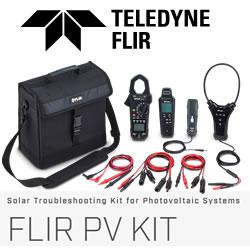New Zealand becomes donor to REEEP
New Zealand has recently made a contribution to the Renewable Energy and Energy Efficiency Partnership (REEEP). Its funding contribution will be specifically targeted towards sustainable energy and greenhouse gas mitigation activities in the South Pacific.
Auckland, October 17, 2006
New Zealand has recently made a contribution to the Renewable Energy and Energy Efficiency Partnership (REEEP). New Zealand has been a member of REEEP since its inception in 2002, however its membership recently gained additional impetus with the opening of the South East Asia and Pacific regional secretariat based in Australia earlier this year.
Energy Minister, David Parker, stated "I am delighted to be able to express New Zealand's tangible support to the REEEP now that it has a clear focus in our region. New Zealand's funding contribution will be specifically targeted towards sustainable energy and greenhouse gas mitigation activities in the South Pacific."
"We also look forward to the new regional secretariat fostering sustainable energy networks in the region, using a 'bottom-up' collaborative approach, so that knowledge and experience can be exchanged with similar networks established by REEEP in other parts of the world."
New Zealand notes that one of the REEEP's aims is to deliver social improvements to developing countries and countries in transition by improving access to reliable clean energy services and by making renewable energy more affordable. This aim is a good fit with New Zealand's general international development goals in the South Pacific.
REEEP International Director, Marianne Osterkorn, stated "the importance of sustainable energy for Small Island States is paramount, as these countries will be the first to feel the direct impacts of climate change. We are extremely grateful for the contribution received from New Zealand for projects across the South Pacific."
New Zealand joins Australia, Austria, Canada, Ireland, Italy, Germany, Netherlands, Spain, the United States and the United Kingdom as a donor.
Featured Product

FLIR PV KIT - Solar Troubleshooting Kit for Photovoltaic Systems
FLIR PV kits are designed to assess the performance, safety, and efficiency of residential, commercial, and industrial solar panels and photovoltaic systems. PV kits from FLIR help you diagnose faults and potential failures and ensure optimal energy production, system longevity, and compliance with industry standards. With a PV kit from FLIR, you'll be perfectly equipped for any solar installation or repair.
